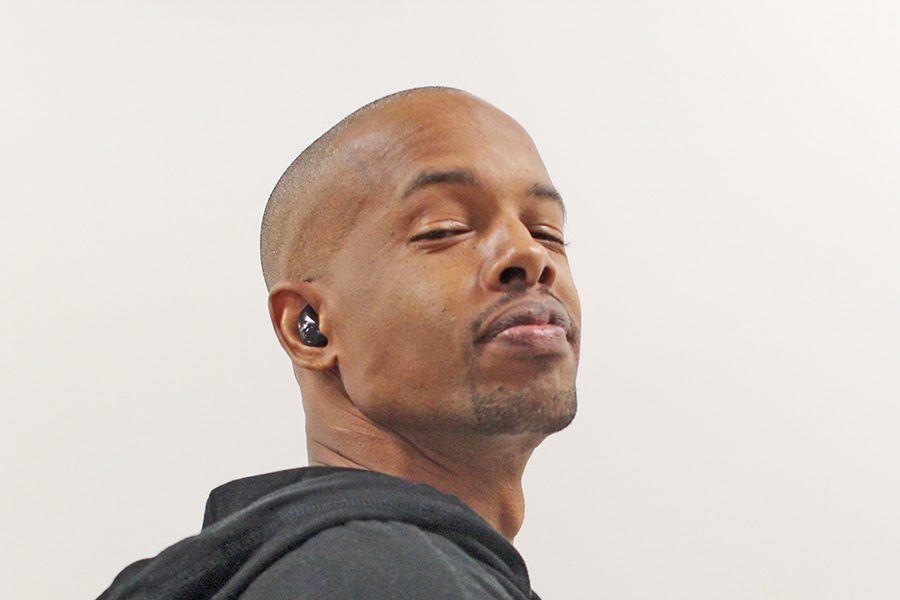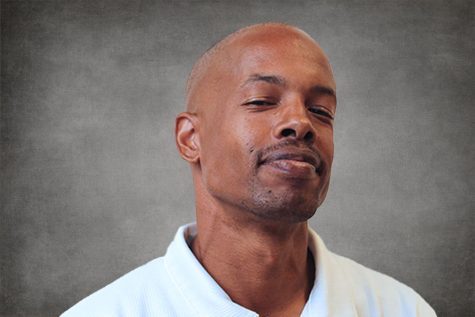Slavery exists in justice system
May 18, 2016
For many, an encounter with a police officer can be soul-wrenching experience because at the whim of a total stranger your dreams, goals or actual freedom can be indiscriminately taken away.
Since its inception, America has been a nation built on the consumption of human souls. By exploiting labor through slavery, it now retains a captive workforce through exploitation of the incarcerated.
The nearly 13,000 inmates working for Federal Prison Industries or (UNICOR) earn anywhere from $.23 to $1.15 per hour. Yet, in 2013 the for-profit company raked in $533 million.
These are not private prisons or license plate factories. Inmates in the program build everything from military uniforms to complex missiles and parts for McDonnell Douglas/Boeing F-15 aircraft.
The Department of Defense is one of the largest entities that contracts with UNICOR.
With more than 11 million non-traffic arrests in 2014 (according to the FBI uniform crime report) and the U.S. topping the list of nations housing the most inmates (2.2 million), modern human traffickers have a steady flow of potential workers to exploit.
The profit margin reflects why criminal justice reform is slow to take shape and why the prison industry touts one of the largest contingencies of lobbyists in Washington, according to a report by the Justice Policy Institute.
Around 13,000 inmates earning $533 million for UNICOR means each inmate generates a total of $38,792 after allowing for an annual wage of $1.15 per hour.
After subtracting the $29,000 that UNICOR lists as the cost to house a federal inmate, the profit gained for one captive soul rests at $9,792 annually.
That puts modern inmate workers in a class less valuable than slaves of the 1860s, who were valued at $400 on average, or $10,995 today, according to Bureau of Labor Statistics consumer price index.
That means slaves were valued higher than today’s criminals. However, this exploitation is totally legal.
The 13th Amendment (which ended slavery) lists involuntary servitude or slavery as a suitable punishment for a crime.
Statistics from the FBI report that there are more than 70 million people, or one out of three Americans, with an arrest record.
America is now home to as many people with criminal records as it has citizens with college diplomas. If America’s criminal record holders formed a country, its population would be larger than France, Canada and Australia.
Today, a past conviction of any sort limits the prospect of a job offer by 50 percent, leaving many with a narrow range of options that often lead to an eventual return to exploitation.
There are more than 850,000 Americans on parole (conditional release from prison) and a whopping 3.9 million people on probation (an alternative sentence to jail).
Most federal inmates are there for nonviolent drug crimes.
More than 11 million people circulate through state and county jails each year and there are already 69,000 kids incarcerated in America, according to the Prison Policy Initiative, guaranteeing a new workforce.
The government is giving itself a free hand out in the form of human bodies.




Jeremy Rector • Jun 6, 2016 at 1:15 pm
That was a really dumb story. Maybe you should write children’s fiction novels.
Kristin Lobos • May 28, 2016 at 10:32 am
Your opinion piece sparked a lively discussion in one of my Health and Human service classes. Many of my fellow students were formerly incarcerated and are now in recovery from drug addiction. Not only are they beating all the odds and turning their own lives around, they are becoming substance use disorder counselors so they can help others. Anytime the advocate has an article about the prison system it is validating for students here on campus who have been locked up. Those who are in the system don’t always know how the system works. We appreciated this information even if some want to pick apart the statistics. We have a movement in this country of recovery advocates, addiction is a health issue NOT a crime. End mass incarceration!
Aristotle Bean • May 23, 2016 at 10:43 pm
Mr. Clinton writes, “Most federal inmates are there for nonviolent drug crimes.”
Depends on your perspective, and how short-sighted you are.
The selling itself is nonviolent. HOWEVER, the deaths caused by the drug after sale can be quite violent: convulsing, frothing at the mouth as a pure measure of the drug eats away at the intestines, hallucinatory stepping in front of a train or out a window on the 15th floor, the wasting away of the human being into a blathering mess who ends up speaking to himself on the street for the rest of his life, the lost jobs, the lost families, the drug leading to a cycle of poverty for generations…..
Lee Wood • May 19, 2016 at 4:11 pm
I read multiple articles concerning “…slavery…as a punishment for crime…”, and this is one of the finest exposures of this reality I have seen. Beyond any doubt, Mr. Robert Clinton deserves great honors for powerful accomplishment. Thank you, Mr. Clinton!
Chris Lamprill • May 19, 2016 at 3:43 pm
I would like to make 2 clarifications:
1. The “prison industry” (sometimes referred to as the “prison industrial complex”) is not the same thing as correctional industry work and reentry programs, although they are often confused. “Prison industry” is the collection of private sector companies that profit from building prisons. It includes the private prison companies. Like you said, they have gigantic lobbying groups. Correctional industries, on the other hand, are facility based vocational work training and reentry programs.
2. Regarding UNICOR’s 533 million, that was their gross sales number, not their profit. And that is a staggering 39.8% decline from what it was 5 years ago. Of that 533 million, their raw material purchases, before any other expenses, totaled 389 million (73%) of their sales. And as they have to pay 1,000 federal civilian employees on top of that to train and supervise in the shops, it is highly unlikely that UNICOR earns any profit. Even if they did earn a profit, federal law requires it to be reinvested in wages, raw material and equipment.
That said…neither of these clarifications should detract from your message about the US problem of over-incarceration, which is inarguably one of the most serious social problems of this century.
Morgan • May 19, 2016 at 10:19 am
No inmates work for unicor involuntarily. They may not like the job as many American’s do not like there job, however they are at work on there own accord. You state in 2013 unicor raked in 533 million. that was not the profit. If a person is in prison what would you rather them be doing with there time? they are required to complete education and programming for release to society. Idle hands and minds in prison do not make a better person
ANTONIO • May 19, 2016 at 6:54 pm
Morgan is more than correct. The very ignorant and narrow view of the UNICOR/Federal Prison Industries system is as it was intended to be (assuming the author truly researched the history):
1. They have to be a good inmate, meaning that they do not cause problems in the prison;
2. They volunteer for the position opening;
3. They are trained and cannot begin working until they pass the training process;
4. They are informed of what they will be paid and that A PORTION OF THEIR PAY WILL GO TOWARD VICTIM REPARATIONS (where/when applicable);
5. They gain a trade for use when/if they are released;
6. If they are lifers then at least they will be doing something useful and productive while our tax dollars pay for their incarceration.
You should conduct some on the ground (as in, in the prison) research. I’m speaking from experience working with the inmates in the program in a Medium Security Prison.
I hope you do a follow up piece once you have gained greater insight and perhaps a new perspective.